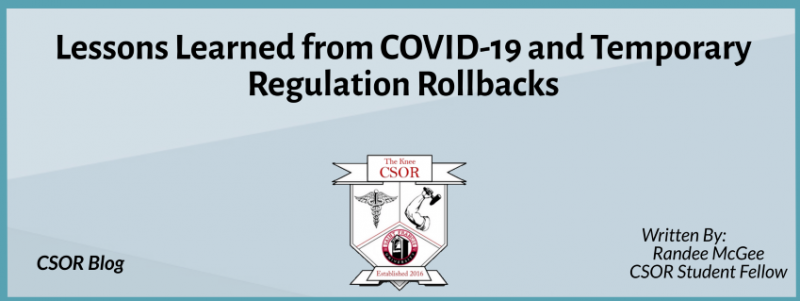
Michigan should open the door to veterans and their families
January 14, 2021
It is 2021 and it is Time for Pennsylvania to Let Nurses Work
February 22, 2021Lessons Learned from COVID-19 and Temporary Regulation Rollbacks
Published 2/19/21
In March of 2020, the United States watched while the state of New York became an epicenter for Covid-19. Governor Andrew Cuomo pleaded for the help of out-of-state healthcare workers, permitting 21,000 non-New York medical professionals to enter the state to practice. Fellow Governors looked to Governor Cuomo and issued their own executive order as a way to help resolve the inadequate amount of essential workers to combat the rapidly-developing pandemic. Moving forward, many of these medical licensing modifications should become permanent as a way to better our healthcare system.
All states have made some temporary modifications to their regulations for out-of-state medical professionals to provide services to combat Covid-19. Only New Jersey, Vermont, and Washington , however, have made such exemptions through new legislation or existing law. The remaining states used Governor issued executive orders to institute their exemptions. States like California, Hawaii, and Maryland permitted out-of-state healthcare workers to practice by recognizing their out-of-state licenses through suspending or waiving current rules. Meanwhile, other states like Maine, Mississippi, and West Virginia waived restrictions on out-of-state telemedicine providers in order to decrease the number of in-person doctor visits.
These emergency revisions aim to decrease barriers and lift licensing restrictions and additional services that are critical to the pandemic recovery. For obvious reasons, the licensing response reforms were crucial during the pandemic. But as the pandemic slowly subsides and vaccine distribution ramps up, the ‘temporary’ licensing changes have taught us one thing; the medical lifts shouldn’t remain so temporary.
Occupational licensing reform has been heading toward the direction of universal license recognition for evident reasons. While licensing requirements may vary between states in terms of practical hours or continued education, in the case of medical professionals there are few differences. If a physician’s assistant is already licensed in one state, they possess the skills necessary to practice as a PA in another state. This is evidenced by the willingness of states to remove policy barriers to address the pandemic on a temporary basis.
In the best of times, licensing reform was a controversial issue of which many policymakers constantly deliberated: licensing, de-regulation, universal recognition, reciprocity, etc. So now in the worst of times, what is stopping states from passing laws that permanently suspend these regulations? If it is safe for patients to receive care, even from an out-of-state nurse practitioner during an emergency situation, why is it not safe for them to do so during non-emergency times? Policymakers must reflect and observe the differences of medical professional requirements during- and post-pandemic.
Occupational licensing laws have been a barrier to entry for many years. State legislatures should consider permanently implementing these temporary medical laws to diminish over-burdensome regulations to avoid the potential panic surrounding medical professional shortages in the future. Making these changes permanent would not only improve state mobility. An additional benefit would include reductions in time spent focused on paperwork and legal jargon, freeing providers to stay focused on the people in need of care.
COVID-19 has provided the country with many lessons to learn. Hopefully freer movement of medical professionals becomes a permanent change.
Randee McGee is a senior at Saint Francis University and a research fellow for the Knee Center for the Study of Occupational Regulation.



